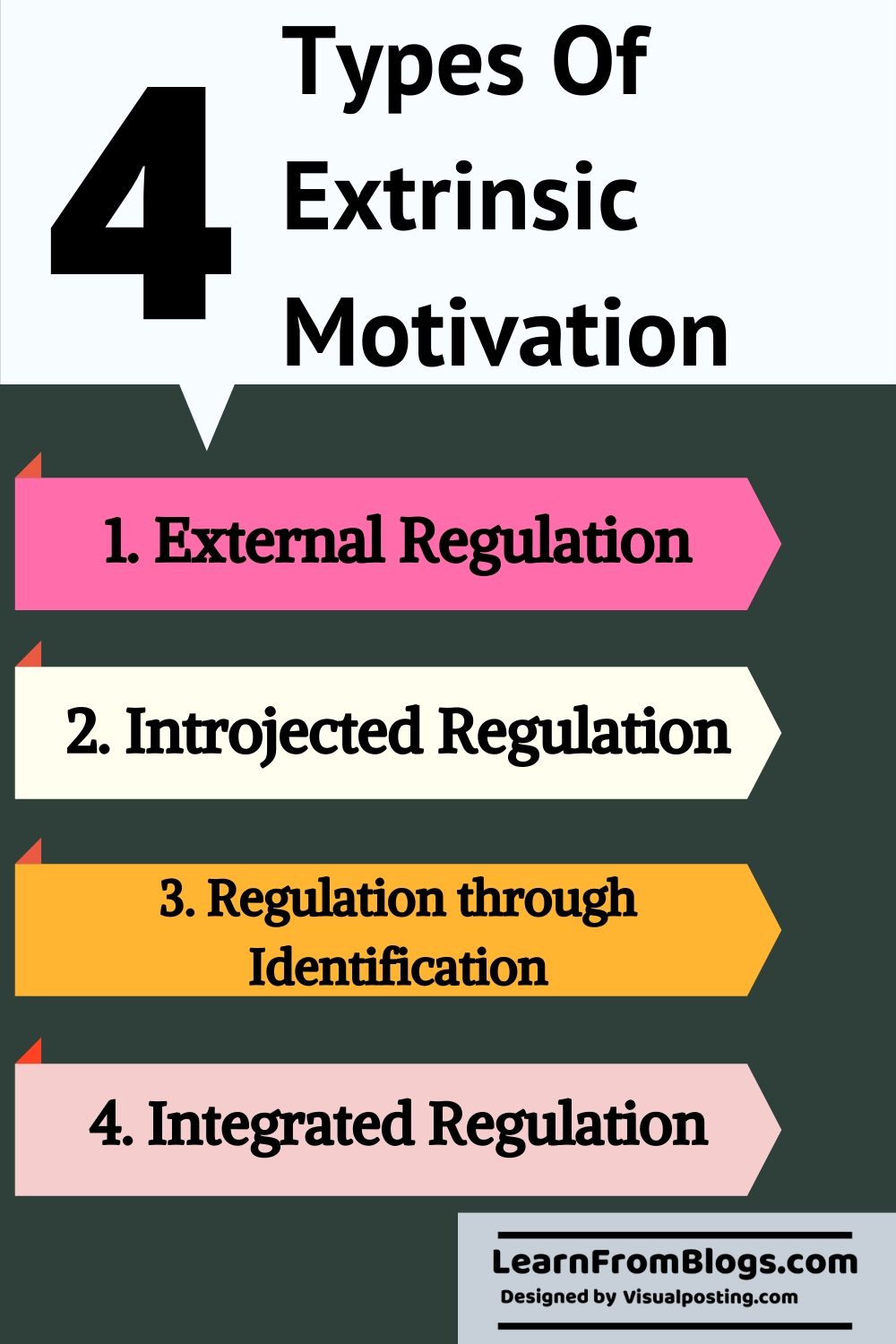
Without a doubt, Intrinsic Motivation is the better one. The ones who are genuinely motivated have succeeded compared with others.
1. On the other hand, extrinsic motivation is not always bad. Reward programs, financial perks could help people do the work with even more enthusiasm.
2. One type of extrinsic motivation that we saw earlier is ‘Integrated Motivation.’ It could be an alternative when an intrinsic motivation fails or not possible.
3. To obtain the best results, sometimes external motivations could work.
4. For a long successful run, you need a self-encouraging intrinsic motivation.
5. When intrinsic motivation didn’t work out, you can still make people going by giving them the right reasons. The point is, with a little help, extrinsic motivation can also get work done for you here.
At last, you are the better judge of yourself. You know what works for you and whatnot.
I am sure that the types of motivation we discussed here will benefit you. It will help you identify the motivation scale that’s around us.
On that note,
Any type of Motivation should end up benefitting you and your values. That’s the core of how motivation works. If it’s not beneficial, not positive, and ethical, it’s better to step away from those motivating factors. Don’t matter if they are intrinsic or extrinsic. Sometimes, combining intrinsic and extrinsic could yield better results for you. In the end, you are the perfect judge.

Explore the 4 types of extrinsic motivation and understand how external incentives influence behavior. Learn strategies for leveraging external rewards effectively.
1. External Regulation:
It’s like an intentional behavior or activity but controlled by external sources or factors. For example, We can see parents telling kids about the rewards they will get after getting specific grades. Intentionally you do the studying as you want to. But, mostly, your studying will be controlled by the rewards waiting for you.
2. Introjected Regulation:
You do it under internal pressure. It could be due to false ego, self-esteem issues, guilt, worry, peer appreciations, approval, validation, and sorts. People do it under an obligation and not because they want to. People know that they have chosen it intentionally to do. Yet, it is not a choice of self-intent.
3. Regulation through Identification:
It’s a more positive side of extrinsic motivation. It’s like people do things by believing in goodwill.
For Example, Consider a Student.
A) The student will have a conscious decision to go to college. It’s like a self-selected goal. It motivates them to study hard and get grades. They do it intentionally but with an external motivating factor.
B) A major difference here. ‘I want to go to college’ is different. ‘I want to go to college as everyone’s going’ is different. The former is regulation through identification.
4. Integrated Regulation:
It’s a wonderful type of motivation. Here, the person will self-reflect, understand the reason, and see if it matches their values and needs. Finally, they take action. Though it is a confident decision, an individual runs through all options and external factors. It influences them.

Intrinsic motivation is about doing things for the sake of internal rewards, self-appreciations, and natural interest. There is no need for external things to make people do what they do. Self-improvement and joy of doing things is another form of intrinsic motivation. People get motivated because they like it.
Similarly, People get motivated to impact people and situations around them positively. Either way, they do because they are inherently motivated.
Every emotion we experience is either triggered internally or eternally. So, here are some of the major factors, reasons, and characters that encourage a sense of self-motivation in people.
Here are examples that explain what extrinsic motivation looks like for you.
1. You are studying because your parents have promised to give you some rewards.
2. You start exercising and do diets because you want to fit in a dress, look like your role model, or someone criticized you for the weight.
3. You take classes or go to classes for the sake of false ego, compulsion, or for any rewards. Internally, you will not enjoy doing it.
4. Choosing work that gives good financial stability, social status, work perks, and allowances. But in reality, you could hate the job you are doing. You could feel like this job is not taking you anywhere & yet you have to do it. For the sake of financial stability, you are motivating yourself to do the job you don’t like. It’s an extrinsic motivation type.
5. You buy books and stack to show off. You buy things to show off.
6. People do things to prove a social status. Inside, they could be struggling, or they don’t enjoy it.
7. Start things just to compete with people who are already doing it. It’s another way of extrinsic motivation.
8. You clean your room because your peers could get a bad opinion or your parents could give you some sort of punishment etc.
"The road to success and the road to failure are almost exactly the same." -- Colin R. Davis

If you enjoy what you do, you don’t need any motivation. People do it for the joy of doing it.
When it comes to intrinsic motivation, people inspire by two things:
1.) How good it feels to do it.
And
2.) How happy it makes them after doing it.
This is how intrinsic motivation works.
Here are some of the practical day to day examples based on Intrinsic Motivation.
1. Exercising to stay fit.
2. Choosing subjects that interest you.
3. Learning new things to gain knowledge.
4. Choosing a career that you like.
5. Playing sports that you like.
6. Taking classes on favorite subjects or hobbies or other related sorts.
7. Studying because you like it. Grades could be secondary here.
8. Buy Novels because of your Reading habits.
9. You start a blog because you like to write.
10. Starting your own business to express things that you like doing. Business is not about starting to compete. It is about starting for the joy of self-content it gives. Most importantly, it’s about trust in oneself.
11. Self-trust is the biggest form of intrinsic motivation.
12. You clean your room because you like to keep things tidy.



